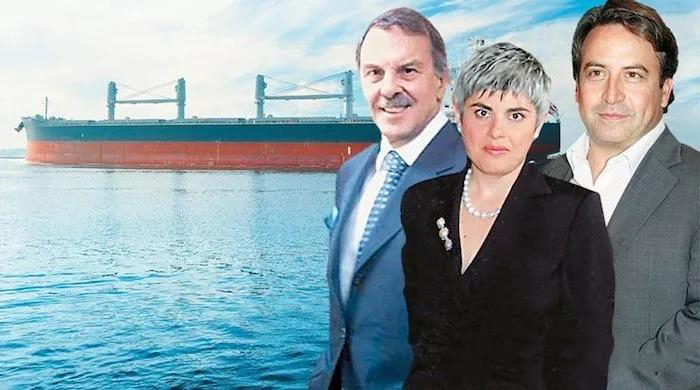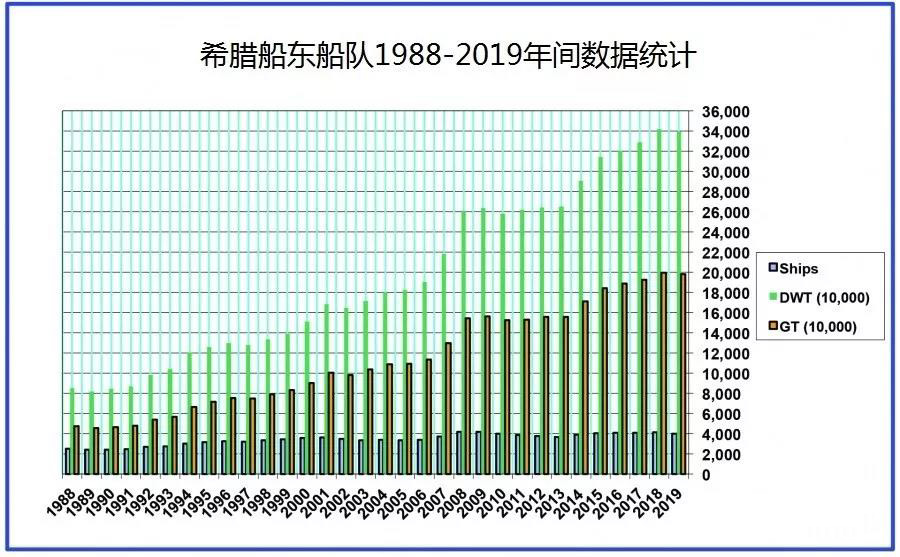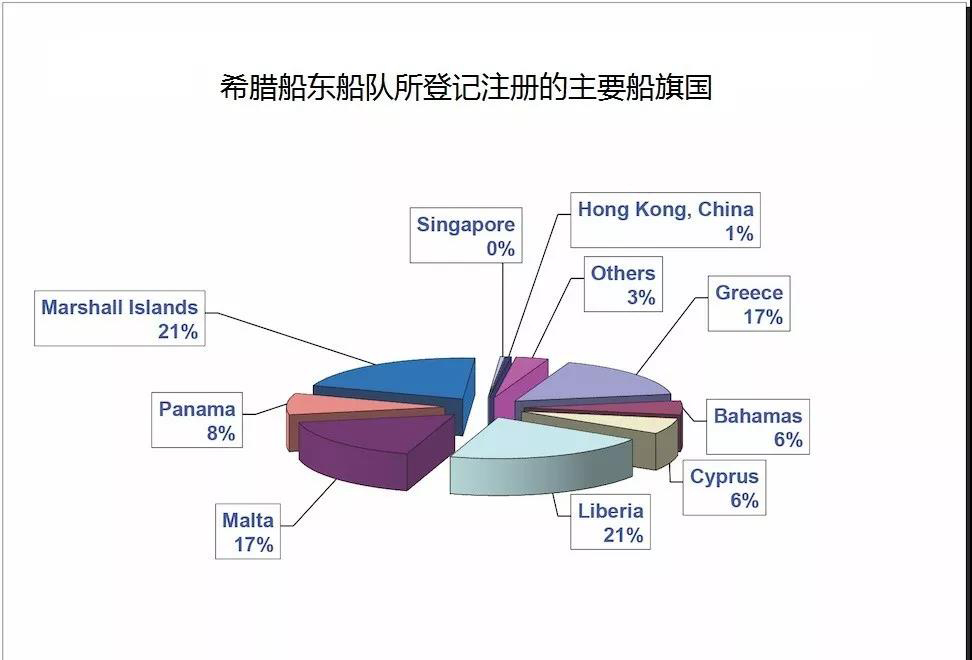The size of the fleet of Greek shipowners has declined for the first time in a decade
Source: Author:FLOURISHING MARINE SERVICE Time:2019-03-15
The size of the fleet of Greek shipowners has declined for the first time in a decade

Although the fleet size and value of the asset, Greek shipowners fleet is still continue to dominate the world dominance, but due to market instability and the release of a new regulatory requirements (environment), the Greek shipowners fleet, in 10 years (from the beginning of march every year when the data of 12 months) for the first time in a decline trend.
By Greek shipping cooperation committee, based in London, England (GSCC) and IHS Markit, the world's leading business information service provider) to collect the statistics show that so far this year on March 6, controlled by the Greek shipowners size of more than 1000 tons gross tonnage of ships, compared with historical levels, the number of ships, load and gross tonnage fell.
According to these data, Greece currently controls 4,017 ships of different types, with a total deadweight tonnage of 339,549,357 DWT and a total tonnage of 198,164,080 gt, respectively. This figure is 131 fewer ships, 2,376,000 DWT and 1,122,000 gt, respectively, compared with the same period last year. This also includes 156 ships being ordered at the shipyard involving a deadweight tonnage of 17,220,000 DWT and a gross tonnage of 11,810,000 gt.

George propio, chairman of danakon tanker management, one of Greece's largest shipowners, said at a debate at the Asian maritime show in Singapore that "we believe that the shipping industry is expecting too much from the environment".
The size of the Greek flag state fleet has been reduced in terms of number of vessels, deadweight tonnage and gross tonnage, and now includes 671 ships of all types, with a deadweight tonnage of 68,260,000 DWT and a gross tonnage of 39,980,000 gt, respectively.
The greek-controlled fleet is currently registered under 33 flag states. In the past 12 months, the number of ships registered in Liberia and the Marshall islands has increased by 16 and 14 respectively. On the other hand, the greek-controlled countries of Cyprus, panama and Malta saw their boat Numbers fall by 26, 18 and 7 vessels respectively. On the other hand, the size of the Greek flag state fleet was reduced by 52 vessels of various types compared with the same period last year, involving a deadweight tonnage of 6,257,000 DWT and a gross tonnage of 3,411,000 gt, respectively. There have also been some subtle changes in the size of Greek ships registered under other flag states.
Overall, according to GSCC data, 840 and 838 Greek vessels with flag ship status for Liberia and the Marshall islands have a deadweight tonnage of 72,532,000 DWT and 68,000,000 DWT, respectively, representing 21.3% and 20% of the total fleet size owned by Greece.

A total of 671 ships registered as the flag state of Greece, with a total deadweight tonnage of 68,260,000 DWT, no longer occupy the largest share of the Greek shipowner fleet in this sense. They now account for 20.1% of the overall size of the fleet owned by Greece. A total of 337 ships registered as the flag state of panama with a total deadweight tonnage of 2,260,000 DWT; A total of 248 vessels registered as the flag state of Cyprus with a gross deadweight tonnage of 19,030,000 DWT; A total of 222 ships with a total deadweight tonnage of 18,970,000 DWT are registered as the flag state of panama.
As of march, Greek shipowners had ordered a total of 36 tankers, 20 chemical/product vessels, 39 liquefied petroleum gas vessels, 49 ore and bulk carriers and 12 container ships.
Greek parent companies now account for 26.9 per cent of the world's tanker fleet and 15.5 per cent of its ore and bulk fleet. Overall, Greek shipowners own 7.2 per cent of the world's fleet, 13.4 per cent in gross tonnage and 15.9 per cent in deadweight tonnage.
The Greek flag state fleet accounts for 1.2% of the world fleet in terms of number of ships, 2.7% in gross tonnage and 3.2% in deadweight tonnage, but 7.6%, 8% and 8.2% in terms of tanker size. The tanker data are an exception to other data changes in the Greek shipowner fleet, which has slightly increased both deadweight tonnage and number of ships compared to its share of the world fleet in 2018. The total deadweight tonnage of its LPG fleet increased while the number of ships decreased slightly.
The average age of vessels in the Greek fleet has increased slightly over the past 12 months, but is still 2.5 years below the world average of 13.7 years at 11.2 years.
Data show that the fleet of Greek shipowners is now largely certified by six classification societies. There are 809 ships certified under the LR(Lloyd's register), down 27 from the same period last year; ABS 781, unchanged from the same period last year; ClassNK(Japan classification society)709, down 37 from the same period last year; BV(bev classification society)679, 2 more than the same period last year; DNV GL(norwegian-germanischer veritas)599, down 56 from the same period last year; Rina(Italian classification society)215 vessels, 10 more than the same period last year. Generally speaking, ABS occupies the first position in terms of deadweight tonnage and gross tonnage.
In terms of statistics of the fleet of Greek flag state, the shares of the above six classification societies are: ABS 185, down 17 from last year; LR 164, down 30 from last year; DNV GL 108, 2 less than the previous year; Rina 77, down 5 from last year; BV stabilized at 64 vessels; ClassNK and CCS are also stable at 17 hull level.
 简体中文
简体中文 ENGLISH
ENGLISH

